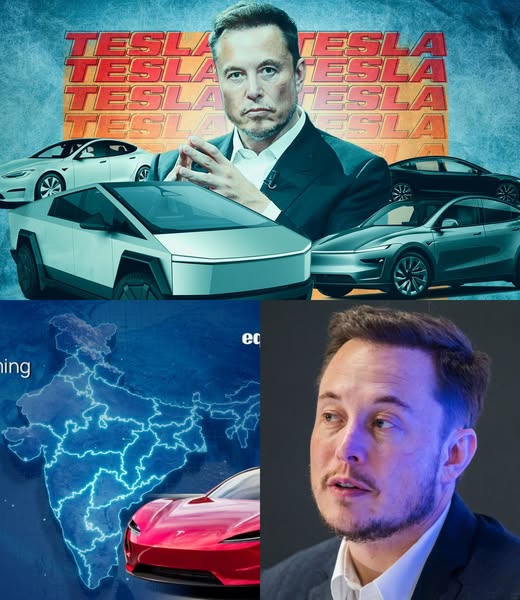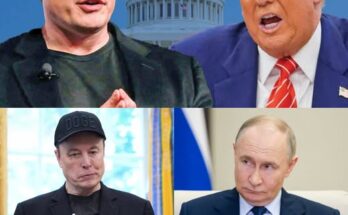India, the world’s most populous democracy and the fifth-largest economy, has always walked a complex tightrope when it comes to foreign investment. It plays a balancing act between safeguarding local industry and inviting global giants to build within its borders. But when Elon Musk—CEO of Tesla, the world’s most valuable electric vehicle (EV) company—shows interest in setting up shop, that equation begins to shift.
What’s surprising is not just India’s willingness to roll out the red carpet for Musk, but how quickly it’s seemingly sidelining traditional automotive powerhouses like Mercedes-Benz and Volkswagen in the process.
This isn’t about favoritism. It’s about strategic alignment, technological leapfrogging, and a race against climate, competition, and time.

India’s EV Ambitions: A Giant on the Move
India has made no secret of its ambitious plans to electrify its roads. With soaring urban pollution, rising oil import bills, and climate commitments under international scrutiny, electric mobility is no longer optional—it’s a national priority.
But here’s the catch: India is behind.
Unlike China, which leads the EV revolution with companies like BYD, Nio, and massive state subsidies, India lacks a dominant domestic EV player. Tata Motors and Mahindra are making strides, but the country has no EV equivalent of a Tesla.
And that’s why Elon Musk matters.
Tesla represents more than just a car company—it’s a symbol of innovation, energy independence, and technological clout. To bring Tesla to India is to send a message to the world: “We’re not just catching up—we’re leading the future.”
The Musk Effect: A Billion-Dollar Courtship
Since 2021, there’s been an on-again, off-again dance between India and Elon Musk. Musk has expressed interest in entering the Indian market but has demanded a reduction in import duties for Tesla vehicles. India, protective of its automotive sector and sensitive to domestic manufacturing concerns, initially resisted.
But by 2023 and 2024, the tone changed.
India began signaling flexibility. High-level talks escalated. Reports emerged that Tesla was considering building a manufacturing facility, a battery storage unit, and even a Gigafactory on Indian soil.
The Modi government reportedly offered Tesla access to its Production Linked Incentive (PLI) schemes, land at discounted rates, and a tailored policy framework—everything Musk had long asked for.
In contrast, Mercedes and Volkswagen—despite their years of presence in India—have found themselves boxed into a quieter corner. While they continue to sell high-end luxury cars and flirt with EV rollouts, India isn’t bending over backward for them anymore.
Why?
Because India doesn’t just want EVs—it wants an ecosystem. And Tesla offers a vertically integrated package: cars, batteries, solar panels, AI, self-driving software, energy storage, and possibly even Neuralink and Starlink synergies down the road.
Mercedes and VW: Too Late to the EV Game?
It’s not that Mercedes-Benz or Volkswagen are failing—they’re just no longer seen as leading the charge.
Volkswagen’s Indian subsidiary has been in the market for years, offering combustion vehicles like the Polo and Vento and later expanding with the Skoda and Audi brands. Mercedes has dominated the luxury segment, especially in metros like Delhi and Mumbai. But their transition to electric has been cautious—incremental, not transformative.
Tesla, by contrast, enters like a storm. It’s not pitching a car—it’s pitching a vision. And for a country desperate to transition its transportation and energy infrastructure, that vision is seductive.
Moreover, Tesla’s brand power among India’s youth, tech-savvy entrepreneurs, and the growing middle class is unmatched. An Indian-made Tesla? That’s aspirational—and aspirational sells.
The Role of Geopolitics: A Strategic Realignment
Let’s step back and consider the geopolitical angle.
As tensions with China simmer, India is rapidly repositioning itself as a global alternative to Chinese manufacturing. This is part of the broader “China+1” strategy adopted by multinational corporations.
Elon Musk is known for his deep China ties—Tesla’s Shanghai Gigafactory is a centerpiece of his global supply chain. But Musk is no fool. He knows diversifying beyond China is a smart move.
India is his next logical bet. It’s politically stable (comparatively), hungry for investment, and willing to play ball.
Welcoming Musk sends a signal to Washington, Silicon Valley, and global markets: India is ready to become a tech-manufacturing superpower. Tesla’s arrival would symbolize that shift more powerfully than any Mercedes or Volkswagen factory could.
Indian Bureaucracy and the Musk Magnetism
India’s bureaucracy is notoriously slow and rule-bound—but Musk has a way of bypassing red tape. He gets governments to bend.
Just as he did in Germany and Texas, Musk wields leverage like few others. Indian officials seem to understand that Tesla is not just another car company. It’s a geopolitical asset, and they’re treating it accordingly.
Meanwhile, legacy European automakers like Mercedes and VW are seen as part of the old economy—conservative, incremental, and slower to adapt.
This doesn’t mean they’re irrelevant. But it does mean that when choices have to be made—when land, incentives, and attention are on the table—Tesla gets first pick.
India’s Own EV Sector: Why Tesla is Not a Threat
Interestingly, India’s embrace of Tesla isn’t seen as undermining its domestic EV sector. That’s because the players occupy different market strata.
- Tata Motors dominates the sub-$30,000 EV market with models like the Nexon EV.
- Ola Electric and Ather Energy focus on two-wheelers and scooters.
- Tesla would likely focus on vehicles priced $40,000 and up—until and unless it introduces a mass-market Model 2 in India.
The Indian government knows that Tesla will not cannibalize local EV sales, at least not in the short term. Instead, Tesla’s presence would accelerate infrastructure, create jobs, and force lagging companies to innovate.
It’s a rising tide lifts all boats scenario.
The Global Shift: Why India Over Germany?
Another revealing trend is this: Tesla has paused expansion in Germany due to regulatory delays and water resource concerns. Meanwhile, it’s fast-tracking plans in India.
Elon Musk has made it clear he values speed, scale, and regulatory cooperation. India is beginning to deliver on all three.
Germany, on the other hand—home to Volkswagen and Mercedes—is bogged down in legacy concerns, environmental protests, labor unions, and bureaucracy. The very system that made it an automotive superpower in the 20th century is now slowing its transition to the 21st.
India doesn’t want to wait. And Tesla doesn’t want to wait either.
A Tesla Gigafactory in India? The Evidence Mounts
Here’s what we know as of mid-2025:
- India has offered Tesla land in multiple states, including Maharashtra, Gujarat, and Tamil Nadu.
- Tesla has scouted sites for a 500,000-unit-per-year Gigafactory, according to leaked reports.
- Tesla has registered an Indian subsidiary and appointed key legal and operations personnel.
- The Indian government is drafting new EV import policies that clearly favor companies willing to manufacture locally.
- Musk has stated publicly that India is a “key market” for Tesla’s future.
This isn’t speculation anymore. It’s momentum.
The Mercedes and VW Dilemma: Respect, but No Urgency
One might ask: What about loyalty to longstanding partners?
Mercedes and Volkswagen have invested millions in India. They’ve trained workers, created jobs, opened service centers, and introduced electric models like the EQS and ID.4.
But here’s the cold reality: India doesn’t owe them anything.
This is not sentiment—it’s strategy. Global markets operate on value and vision, not history. Mercedes and VW had decades to make India central to their EV plans. They hesitated. Tesla didn’t.
When Mercedes looks at India, it sees a luxury outpost. When Tesla looks at India, it sees a launchpad.
Conclusion: India’s Bold Gamble
India is making a bet. A big one.
By prioritizing Tesla—even at the cost of cooling relationships with legacy European automakers—it’s choosing the future over the familiar. It’s signaling to the world that it wants to leapfrog, not play catch-up.
And Elon Musk, ever the disruptor, is the perfect partner for that leap.
Yes, there are risks. Tesla is volatile. Musk is unpredictable. And the Indian market is price-sensitive and infrastructure-starved.
But the potential payoff is enormous: jobs, investment, clean energy, global prestige, and technological momentum.
So when India sidelines Mercedes and Volkswagen, it’s not personal. It’s planetary.
Because this isn’t about cars anymore.
It’s about power—economic, political, and electric.


